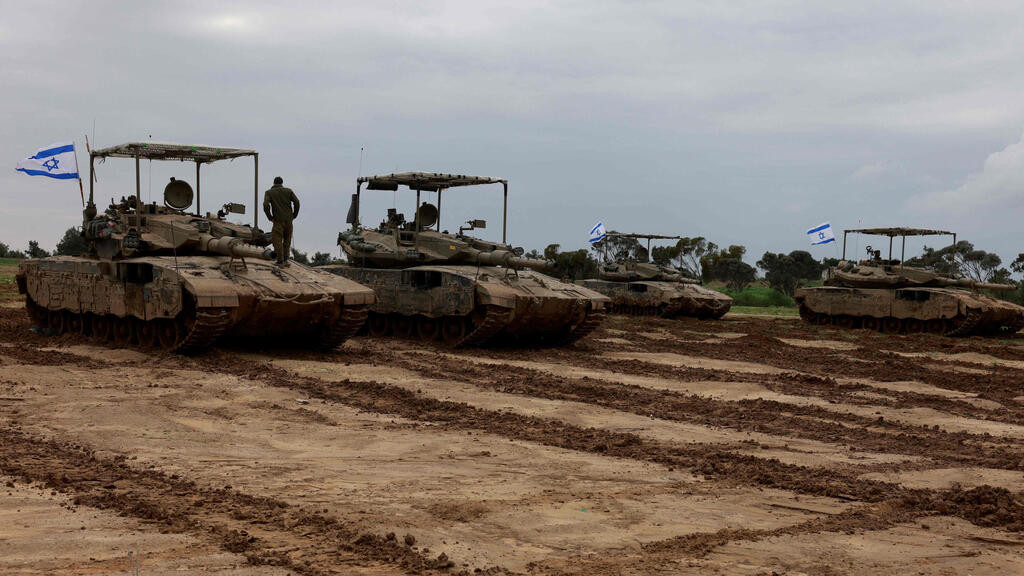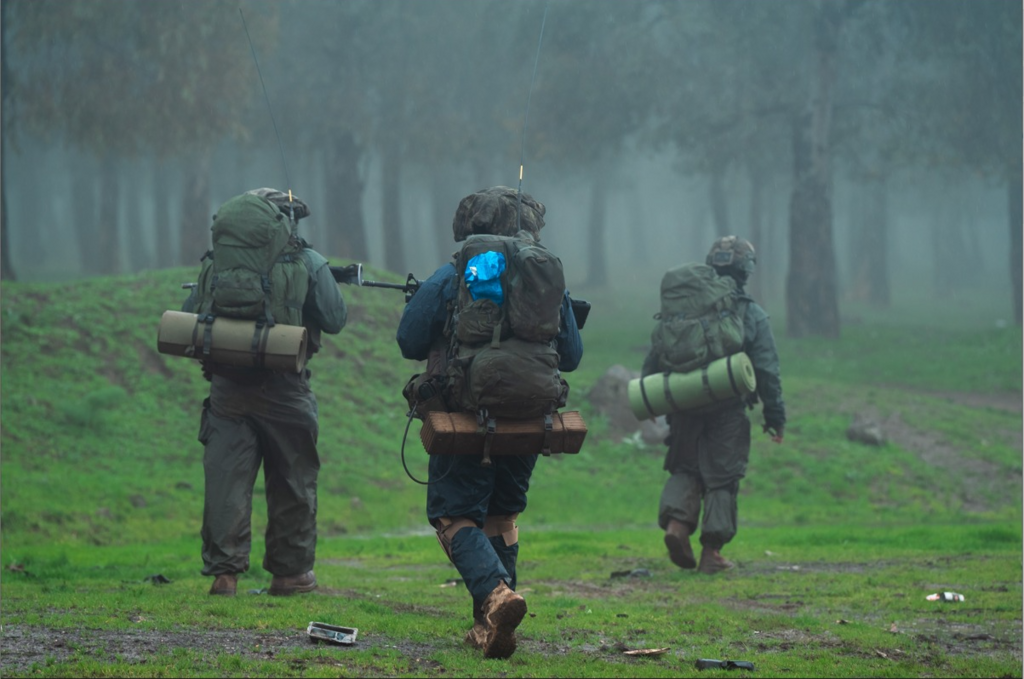As winter firmly establishes itself, the ongoing conflict on the northern border prompts questions, even among Arab states, about the implications of changing weather conditions on military operations. In Lebanon, the onset of winter was strongly felt earlier this week. On Sunday evening, videos and images circulated showing floods in the streets of Beirut, including the tunnel leading to Rafic Hariri International Airport, adjacent to Dahieh, a Hezbollah stronghold.
Floods in Beirut
Heavy rains caused flooding that trapped people in their vehicles. Lebanese civil defense teams rescued those trapped, especially in the areas of Al-Hadath and A-Shweifat in Dahieh. Winter floods are not uncommon on the streets of Lebanon. However, unlike previous years, this year sees intense fighting between Israel and Hezbollah, with significant strikes deep into Lebanon after last winter’s strikes focused mainly on border villages and towns.
The Lebanese Al-Mayadeen network, affiliated with Hezbollah, reported early Wednesday morning that Israeli Air Force planes continued to attack Dahieh, conducting about nine strikes on Hezbollah's stronghold by morning. These strikes followed a field tour and situational assessment in southern Lebanon by IDF Chief of Staff Herzi Halevi and the Northern Command commander.
During the tour, Halevi told the soldiers: "The IDF is working very hard in parallel, we heavily attacked Hezbollah targets. We are attacking deep and extensively in Syria and the Syria-Lebanon border to prevent weapons from reaching Hezbollah. Clearing this area will provide us with the basic conditions to do the right things, so that in the valley below it will truly be safe."
An article in the Saudi newspaper Asharq Al-Awsat published in London in Arabic, discussed the expected impact of the rainy season on the war. It reported that winter is likely to delay the war but not stop it. The greatest impact is expected to be on ground combat, but even here, the impact is limited, mainly on the movement of soldiers and vehicles. According to experts, military actions relying on the Air Force will be even less affected, considering that winter in the region is not defined as severe compared to other parts of the world.
One interviewee in the Saudi newspaper, a former senior Lebanese army officer named Abd al-Rahman Shahatili, claimed that the weather has "no significant impact on the battle, as means have already been developed to fight under all conditions." He argued that rain and fog in winter complicate ground combat but also help both sides, as they blur vision and assist Hezbollah fighters in both attacking and defending by camouflaging themselves.
According to him, Israel, with its more advanced equipment, has an advantage in winter conditions, while Hezbollah fighters have to move on muddy and unpaved roads, complicating their activities. The article also noted that winter affects the morale of fighters and the living conditions of those who left their homes due to the war, which could lead to pressure to promote negotiations and a political settlement to end the war. Another former senior Lebanese army officer named Hassan Jouni told the newspaper that if there is a decision to continue the war, winter will not stop it.
He claimed that the weather actually affects the attacker more than the attacked, and Hezbollah is prepared, familiar with the terrain and geography of southern Lebanon, and its targets are known. According to Jouni, because of Hezbollah's familiarity with the terrain, it is less affected by cold and rainy weather.
He did note the impact of winter weather on vehicle movement but clarified that it is a limited impact that will not hinder continued fighting. He added that it is not extreme weather conditions, such as snow, heavy rains, and strong winds in the region, that are supposed to affect aerial activity, and that advanced aircraft, missiles and drones exist that can operate in such conditions.
Get the Ynetnews app on your smartphone:








